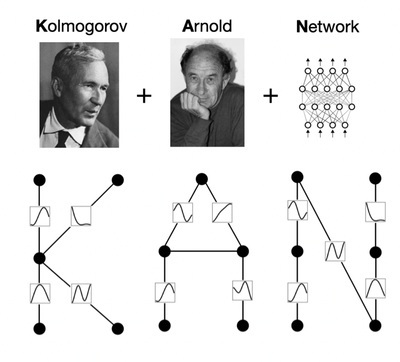Algorithmic Information Theory - I

If you like our work, please consider supporting us so we can keep doing what we do. And as a current subscriber, enjoy this nice discount!
Also: if you haven’t yet, follow us on Twitter, TikTok, or YouTube!
In computer science and information theory, algorithmic information theory (AIT) is the study of the information content of algorithms. It is related to the fields of data compression, cryptology, and thermodynamics.
AIT attempts to answer the following questions:
- What is the simplest way to describe a given algorithm?
- What is the relationship between the length of a description of an algorithm and the complexity of the algorithm?
- What are the limits of compressibility of a given sequence?
- What is the thermodynamic cost of running a given algorithm?
AIT is based on the concept of Kolmogorov complexity, which is a measure of the amount of information in a string. The Kolmogorov complexity of a string is the length of the shortest program that can generate the string.
AIT has been used to study the compressibility of data, the complexity of algorithms, and the thermodynamic cost of computation. It has also been applied to the study of randomness, cryptology, and intelligence.
In recent years, AIT has been used to study the structure of the universe and the origin of life. AIT has also been used to study the foundations of mathematics and physics.
Applications of algorithmic information theory
Algorithmic information theory is a branch of mathematics and computer science that deals with the question of how much information is contained in an object, such as a string of bits or a program. It has applications in a variety of fields, including data compression, cryptography, and artificial intelligence.
A common measure of the amount of information in a string is its Kolmogorov complexity, which is the length of the shortest program that can generate the string. This can be thought of as the minimum amount of information that is needed to describe the string.
Algorithmic information theory also deals with the question of randomness. A string is said to be random if it cannot be generated by a shorter program than itself. This is a strong form of randomness, and it is not always easy to determine whether a given string is random or not.
Algorithmic information theory has also been used to develop methods for proving lower bounds on the complexity of algorithms. These methods can be used to show that certain problems are intrinsically difficult and that there is no algorithm that can solve them in polynomial time.
The philosophical implications of algorithmic information theory
Algorithmic information theory is a branch of computer science and information theory that explores the philosophical implications of algorithms and computation. It is also known as the theory of algorithmic information.
The theory was first proposed by mathematician David Hilbert in the early 1920s. He suggested that the behavior of a system could be completely determined by a set of rules or an algorithm.
Hilbert's work was later formalized by Alan Turing, who is credited with inventing the concept of the Turing machine. Turing showed that any system that could be described by an algorithm could be simulated by a Turing machine.
The theory has since been extended by many other researchers, including Gregory Chaitin, Ray Solomonoff, and Andrei Kolmogorov.
Algorithmic information theory is closely related to the field of computational complexity theory. Both fields are concerned with the resources required to perform computations.
Algorithmic information theory is also related to the philosophy of mind, particularly the problem of consciousness. Some researchers have suggested that consciousness could be viewed as a form of computation.
The theory has implications for the philosophy of science, particularly the problem of induction. If the universe is a computer, then the laws of physics may be viewed as algorithms.
The theory also has implications for the philosophy of language. If the meaning of words is determined by algorithms, then the meaning of a sentence may be viewed as a function of the meanings of the words that make it up.
Algorithmic information theory is a relatively young field, and its implications are still being explored. It is an active area of research, with many open questions.
Do you like our work?
Consider becoming a paying subscriber to support us!
No spam, no sharing to third party. Only you and me.






